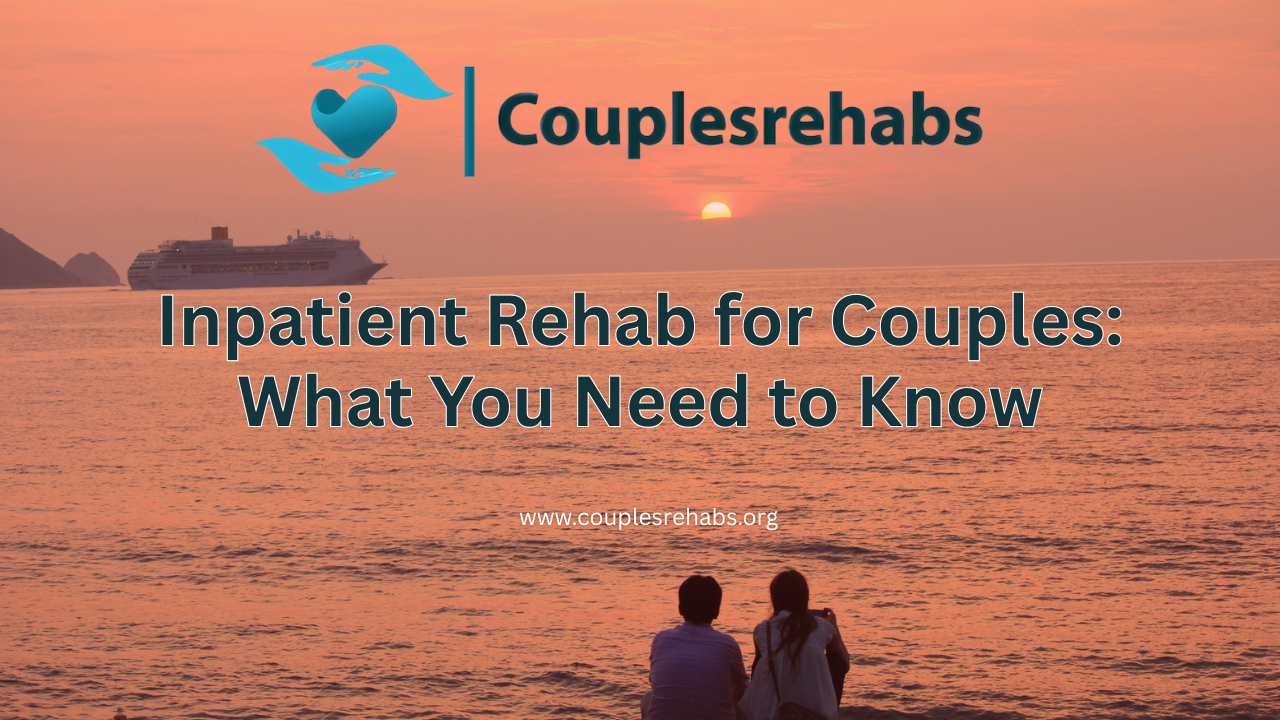Do Couples Rehabs Help With Codependency?
Have you ever found yourself lying awake at night, wondering if you’re helping or hurting your partner’s recovery? Maybe you’ve canceled plans to monitor their sobriety, hidden their mistakes from family members, or felt guilty every time you try to focus on your own needs. If your relationship has become consumed by your partner’s addiction while you’ve lost yourself in the process, you’re experiencing what millions of couples face: the devastating cycle of codependency.
Codependency transforms love into control, support into enabling, and partnership into a exhausting dance of rescue and resentment. But here’s what many people don’t realize – couples rehabs can absolutely help break these destructive patterns, offering specialized treatment that addresses both addiction and the relationship dynamics that fuel it.
At Couples Rehabs, we’ve seen relationships transform from battlegrounds of blame and control into partnerships built on mutual respect, healthy boundaries, and genuine intimacy. The question isn’t whether couples rehab can help with codependency – it’s whether you’re ready to discover what your relationship could become when both partners heal together.
In this comprehensive guide, you’ll learn exactly how couples therapy programs address codependency and substance abuse, what makes residential rehab options effective for partners struggling with codependent dynamics, and the specific strategies used in couples rehab to overcome these challenging relationship patterns.
Understanding Codependency in Relationships Affected by Addiction
Codependency in addiction-affected relationships goes far beyond simply caring too much about your partner. It’s a complex pattern of behaviors where one person becomes so focused on controlling, fixing, or managing their partner’s addiction that they lose their own sense of identity and well-being. Unlike healthy support, which maintains boundaries and encourages personal responsibility, codependency creates an unhealthy dynamic where both partners become trapped in destructive cycles.
Common signs of codependency include constantly making excuses for your partner’s behavior, lying to family and friends to protect them from consequences, managing their responsibilities when they’re unable to do so due to substance use, and feeling responsible for their sobriety or relapses. Many codependent partners find themselves walking on eggshells, constantly monitoring their loved one’s mood and behavior while neglecting their own needs entirely.
The connection between enabling behaviors and addiction runs deep. When a codependent partner consistently rescues their loved one from natural consequences – calling in sick for them, paying bills they’ve neglected, or providing money that gets spent on substances – they inadvertently remove incentives for change. This enabling doesn’t come from malicious intent; it stems from love, fear, and a desperate desire to help. However, it often perpetuates the addiction cycle rather than supporting genuine recovery.
What makes codependency particularly challenging in addiction contexts is how it affects both partners’ recovery. The person with the substance use disorder may resist treatment because they’ve become accustomed to having their responsibilities managed by their partner. Meanwhile, the codependent partner often experiences their own form of addiction – to being needed, to controlling outcomes, or to the chaotic intensity that characterizes their relationship dynamic.
Breaking these patterns requires more than individual willpower or good intentions. It demands professional intervention that addresses both the addiction and the relationship dynamics that have developed around it.
How Couples Rehabs Address Codependent Dynamics
Couples Rehabs take an integrated approach that recognizes addiction as a family disease affecting both partners, even when only one person uses substances. Rather than treating each person in isolation, these programs work with couples simultaneously to identify and change destructive relationship patterns while supporting individual recovery goals.
The assessment process in couples treatment examines not just substance use patterns, but communication styles, boundary issues, enabling behaviors, and each partner’s role in maintaining dysfunctional dynamics. Therapists look at how arguments escalate, how decisions get made, who takes responsibility for what, and how both partners respond to stress or conflict.
Treatment planning in couples rehab addresses both individual and relationship goals. For the person with addiction, this includes traditional recovery objectives like achieving sobriety, developing coping skills, and addressing underlying mental health issues. For the codependent partner, goals might include learning to set healthy boundaries, developing personal interests and identity outside the relationship, and understanding their own patterns of behavior.
What sets couples treatment apart is its focus on healing together while maintaining individual accountability. Partners attend both joint sessions where they work on communication and relationship skills, and separate sessions where they can explore personal issues without worrying about their partner’s reactions. This dual approach ensures that neither person gets lost in the couple’s dynamic while still addressing the relationship patterns that contribute to both addiction and codependency.
Family therapy principles guide much of this work, recognizing that changing one part of a relationship system affects all other parts. When the codependent partner learns to stop enabling, for instance, it creates space for their addicted partner to experience natural consequences and potentially become more motivated for change.
Evidence-Based Approaches Used in Couples Addiction Treatment
Behavioral Couples Therapy (BCT) has shown particular effectiveness in treating couples where addiction and codependency are present. This approach focuses on changing specific behaviors rather than just exploring feelings or past experiences. Partners learn new ways to communicate about difficult topics, practice setting and respecting boundaries, and develop concrete skills for supporting each other’s recovery without enabling destructive behaviors.
Cognitive Behavioral Therapy techniques help both partners identify thought patterns that contribute to dysfunctional relationship dynamics. The codependent partner might learn to recognize catastrophic thinking that leads to controlling behaviors, while the addicted partner works on challenging thoughts that justify substance use or blame others for their problems.
Dialectical Behavior Therapy skills prove valuable for couples dealing with intense emotions and conflict. These techniques teach distress tolerance, emotional regulation, and interpersonal effectiveness – all crucial for breaking codependent patterns and maintaining sobriety under stress.
Family systems approaches examine how each partner’s family of origin influences their current relationship patterns. Many people in codependent relationships grew up in families affected by addiction, mental illness, or other forms of dysfunction. Understanding these origins helps couples recognize automatic responses and choose healthier alternatives.
Research consistently shows that couples who engage in treatment together have better outcomes than those who pursue individual treatment alone. Studies indicate that when both partners are actively involved in recovery, relapse rates decrease significantly, and relationship satisfaction improves more dramatically than in traditional individual treatment approaches.
Benefits of Attending Couples Rehab for Codependent Relationships
One of the most significant benefits couples experience is improved communication skills that extend far beyond discussing addiction-related issues. Partners learn to express needs clearly, listen without becoming defensive, and negotiate conflicts without resorting to manipulation or control. These skills become the foundation for a healthier relationship dynamic overall.
Boundary setting represents another crucial benefit. Many codependent partners have never learned to distinguish between their responsibilities and their partner’s responsibilities. Through couples therapy, they develop the ability to offer support without taking over, to care without controlling, and to maintain their own well-being regardless of their partner’s choices.
Individual identity development occurs naturally when codependent patterns begin to shift. The codependent partner rediscovers interests, friendships, and goals that exist independently of their partner’s addiction or recovery. This personal growth often surprises people who have spent years defining themselves primarily in relation to someone else’s problems.
Mutual accountability systems develop organically in healthy couples recovery. Rather than one partner policing the other’s behavior, both individuals take responsibility for their own actions while offering appropriate support. This creates a partnership dynamic rather than a parent-child relationship that characterizes many codependent couples.
The emotional benefits extend beyond the couple to affect their entire family system. Children in these families often experience relief when chaos decreases and parental relationships become more stable and predictable. Extended family members frequently notice positive changes in family gatherings and interactions.

Types of Couples Rehab Programs That Address Codependency
Residential couples programs offer the most intensive level of care, providing 24-hour support in a controlled environment where couples can focus entirely on recovery without outside distractions or triggers. These programs typically last 30 to 90 days and include individual therapy, couples counseling, group therapy with other couples, educational workshops, and recreational activities designed to help partners reconnect in healthy ways.
Intensive outpatient programs allow couples to remain at home and work while attending treatment several hours per day, multiple days per week. This option works well for couples who have strong support systems and stable living situations but need significant therapeutic intervention to address codependent patterns.
Partial hospitalization programs provide more structure than traditional outpatient care while allowing couples to return home each evening. These programs often include psychiatric services for couples dealing with dual diagnosis issues where mental health conditions complicate both addiction and relationship dynamics.
Many programs offer specialized codependency tracks that focus specifically on relationship dynamics rather than just addiction treatment. These tracks might include educational components about healthy relationships, communication workshops, boundary-setting exercises, and individual therapy focused on codependency recovery.
The length and intensity of treatment vary based on the severity of both addiction and codependent patterns, the couple’s motivation for change, their support system, and any co-occurring mental health issues. Some couples benefit from shorter intensive programs followed by ongoing outpatient support, while others need longer residential treatment to establish stable foundations for recovery.
What to Expect During Couples Codependency Treatment
A typical day in residential couples treatment might begin with individual reflection time, followed by separate therapy sessions where each partner works on personal recovery goals. Mid-morning often includes couples counseling focused on specific relationship skills or conflicts. Group therapy with other couples provides opportunities to learn from others’ experiences and practice new communication techniques in a supportive environment.
Educational workshops cover topics like the neuroscience of addiction, the psychology of codependency, healthy relationship skills, relapse prevention, and family dynamics. These sessions help couples understand their experiences within broader contexts and provide practical tools for ongoing recovery.
Recreational activities serve important therapeutic purposes beyond simple enjoyment. Couples might participate in art therapy, outdoor adventures, fitness activities, or creative projects that help them connect in new ways and discover shared interests beyond addiction and recovery.
Individual work within the couples context addresses personal trauma, mental health issues, family of origin patterns, and individual recovery goals. This separate work ensures that each person develops their own recovery foundation rather than becoming overly dependent on their partner for motivation or support.
Family therapy sessions may include children, parents, siblings, or other significant family members. These sessions help extend healthy changes beyond the couple to include their broader support system and address any family patterns that might undermine recovery efforts.
Progress in couples treatment often comes in waves rather than steady linear improvement. Couples typically experience early enthusiasm, followed by resistance as old patterns surface, then gradual integration of new skills, and finally more consistent application of healthy relationship dynamics.
Choosing the Right Couples Rehab Program for Codependency Issues
When evaluating couples rehab programs, look for facilities that specifically address codependency rather than just treating addiction with couples therapy as an add-on service. The treatment team should include therapists trained in both addiction treatment and couples/family therapy, with specific experience in codependency recovery.
Ask potential programs about their approach to individual versus couples work. Effective programs balance joint sessions with individual therapy, ensuring that neither partner loses their personal recovery focus while working on relationship issues. Inquire about group therapy opportunities with other couples, as peer support often accelerates progress.
Consider the program’s philosophy about family involvement. Some couples benefit from including children or extended family members in treatment, while others need to focus on their relationship first. The right program will assess your specific situation and recommend appropriate family involvement levels.
Insurance coverage varies significantly for couples treatment, so verify benefits and understand any out-of-pocket costs before committing to a program. Some facilities offer financial assistance or payment plans for couples who need support accessing treatment.
Location considerations include proximity to your support system, work obligations, and whether you need to be away from triggers in your home environment. Some couples benefit from residential treatment in a different state, while others do better staying close to home with intensive outpatient support.
Long-term Recovery Strategies for Codependent Couples
Successful long-term recovery from codependency requires ongoing attention even after formal treatment ends. Many couples benefit from continued couples therapy on a less intensive basis, attending monthly or bi-weekly sessions to maintain progress and address new challenges as they arise.
Individual therapy often continues for both partners, particularly for the codependent partner who may need additional support in maintaining boundaries and developing personal identity. Support groups specifically for codependency, such as Co-Dependents Anonymous, provide ongoing peer support and accountability.
Developing new routines and traditions helps couples create positive relationship patterns that aren’t centered around addiction or crisis management. This might include regular date nights, shared hobbies, exercise routines, or volunteer activities that strengthen their bond while maintaining individual interests.
Communication check-ins become essential tools for long-term success. Many couples schedule weekly meetings to discuss concerns, appreciate positive changes, and practice the communication skills learned in treatment. These structured conversations prevent small issues from becoming major conflicts.
Relapse prevention planning addresses both substance use relapses and relationship pattern relapses. Couples learn to identify warning signs that old codependent patterns are returning and develop specific strategies for getting back on track quickly rather than allowing problems to escalate.
Building a healthy support network extends beyond the couple to include friends, family members, and community connections that support their recovery goals. This network provides alternative sources of support and accountability, reducing the pressure on each partner to meet all of the other’s emotional needs.
The journey from codependency to healthy interdependence takes time, patience, and professional support, but countless couples have successfully transformed their relationships through specialized treatment. At Couples Rehabs, we understand that healing happens best when partners work together toward shared goals while maintaining their individual recovery. If codependency has become part of your relationship’s struggle with addiction, know that change is possible and support is available.
Recovery from codependency doesn’t mean caring less about your partner – it means learning to care in ways that actually help rather than harm. When both partners commit to this healing process, relationships can become sources of strength and joy rather than stress and conflict. Take the first step toward healthier patterns by reaching out for professional assessment and support tailored to your unique situation.
Frequently Asked Questions About Couples Rehabs and Codependency
How long does couples rehab treatment for codependency typically take?
Treatment duration varies based on the severity of both addiction and codependent patterns. Residential programs typically range from 30 to 90 days, while intensive outpatient programs may extend from 3 to 12 months. Many couples benefit from initial intensive treatment followed by ongoing therapy and support groups. The key is that healing codependency often takes longer than addressing addiction alone, as these relationship patterns may have developed over many years.
Can couples rehab work if only one partner is motivated to change?
While couples rehab is most effective when both partners are equally committed, programs can still provide significant benefits even when motivation levels differ initially. Often, as one partner begins implementing healthy changes, it creates natural pressure for the other to engage more fully. However, long-term success requires both individuals to eventually commit to examining and changing their own behaviors.
What happens if we argue or have conflicts during couples treatment?
Conflicts during treatment are not only normal but often necessary for real progress. Couples therapy provides a safe, structured environment where disagreements can be explored constructively rather than destructively. Therapists help couples learn new communication skills and practice working through conflicts in healthier ways. Many couples find that learning to fight fair becomes one of their most valuable treatment outcomes.
Do we attend all therapy sessions together, or do we also have individual time?
Effective couples rehab programs balance joint sessions with individual therapy time. You’ll typically attend couples counseling together several times per week, plus individual sessions where each partner can explore personal issues, trauma, or concerns they’re not ready to discuss with their partner present. This combination ensures both relationship healing and individual growth.
How much does couples rehab cost, and does insurance cover it?
Costs vary significantly based on program type, location, and length of stay. Residential programs may range from $15,000 to $80,000 per month, while outpatient programs typically cost $3,000 to $10,000 per month. Insurance coverage varies, but many plans cover at least a portion of couples treatment, especially when addiction is the primary diagnosis. It’s essential to verify benefits and explore financial assistance options with potential treatment centers.
What if we have children? How does couples rehab affect our family?
Many couples rehab programs offer family therapy components that can include children when appropriate. Some residential programs provide family weeks where children visit and participate in age-appropriate therapy sessions. Childcare arrangements vary by program, and some facilities offer on-site childcare or assistance in arranging care. The goal is always to strengthen the entire family system, not just the couple’s relationship.
How do we know if we need couples rehab versus individual treatment?
Consider couples rehab if your relationship dynamics significantly impact addiction or recovery, if enabling behaviors are present, if you’ve experienced repeated relapses that seem connected to relationship stress, if both partners struggle with substance use, if codependency patterns are clearly evident, or if previous individual treatment hasn’t led to lasting recovery. A professional assessment can help determine the most appropriate treatment approach for your specific situation.
Ready to Break Free from Codependent Patterns?
You don’t have to navigate addiction and codependency alone. At Couples Rehabs, we specialize in helping couples heal together through evidence-based treatment programs designed specifically for relationships affected by substance abuse and codependent dynamics.
Take the first step toward a healthier relationship today. Call us today for a confidential consultation and to learn more about treatment options tailored to your unique situation. Recovery is possible. Healing is possible. A stronger relationship is within reach.















Recent Comments